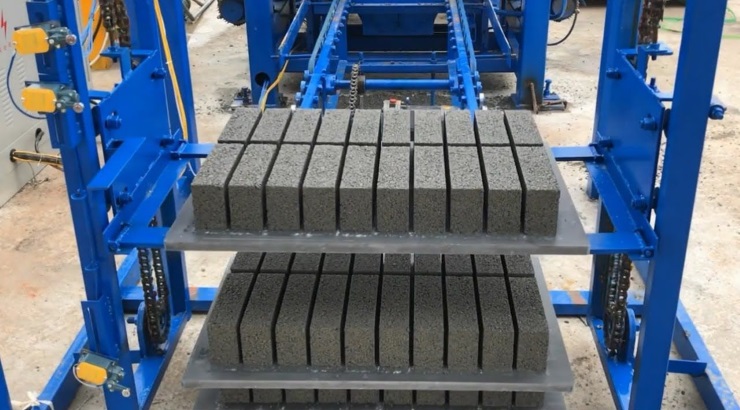Features
How to Choose the Right Brick Maker Machine
Important considerations when shopping for a brick maker machine.

Buying a machine that makes bricks is a great investment choice for cost-conscious home builders as well as full-time sellers of building blocks.
Brickmaker machines have revolutionized the age-old process of making bricks by hand – where clay was mixed with water, cast in the molds, dried, and then fired in the kiln.
Although the process largely remains the same, humans now use semi-automatic machines such as fly ash brick-making machines, hydraulic brick-making machines, etc. to manufacture building bricks and blocks.
With the market awash with various types of machines that make bricks, you may not be quite sure of the right choice of a brick maker for your project.
Here are the key considerations when purchasing a brickmaker machine:
1. Scale of operations
When shopping for a machine for making blocks, you should keep in mind the production capacity of the appliance.
If, for example, you plan to buy a brick maker machine to create bricks for your house-building project, a small-scale apparatus will serve your purpose.
On the other hand, you should go for a large-scale brickmaker machine if you plan to start a block-making business.
2. Quality of machine
The type of material used to construct a machine usually determines the quality of the apparatus. Ensure your machine is built with high-quality materials for durability and reliable brick production.
You should particularly check the quality of hydraulic cylinder, pump and valve since they have great effects on the machine’s hydraulic system.
RELATED: ABCs of Interlocking Blocks
Be sure to buy a brick-making machine whose forming molds have been dealt with carbonization as these apparatus have a longer service life and are more efficient in the long run.
Avoid machines whose forming molds are made from ordinary steel without any treatment as their quality cannot be ascertained.
3. Styles of bricks
Different types of brick-making machines produce diverse types of bricks, such as hollow bricks, fly ash bricks, concrete bricks, interlocking bricks, cement bricks, solid bricks, etc.
It is important to ascertain in advance that your brick-making machine of choice can produce the sort of bricks or blocks you require for your project.
Ask your dealer as many questions as possible about the capabilities of each of your prospective machines to avoid disappointments.
4. Levels of autonomy
An autonomous machine is designed and engineered to adapt to changing surroundings on its own and perform its tasks for extended periods without human intervention.
Like most other apparatus, machines that make bricks and blocks have various levels of autonomy. It is advisable to pick a machine that enjoys high levels of independence, especially if you need to produce large volumes of bricks.
5. Ease of maintenance
When shopping for a machine, most people consider its features, ease of use, and workmanship, but they tend to overlook a key factor: serviceability.
Like any other equipment, a brick-making machine requires routine maintenance to operate efficiently and with longevity. You should therefore consider a machine’s ease of maintenance as well as the availability of spare parts.
How brick making machine works
The procedure of brick-making can generally be summarized into three steps. First thing, the requisite materials (e.g. fly ash) are loaded into the dosing machine before being transferred to the mixer.
As soon as mixing is done, the materials are sent to the distributor which forcibly feeds them into mold, which helps to strengthen the bricks.
Once molding is completed, the bricks are moved to the stacking machine, and a forklift is used to convey the pieces to the drying field.
The blocks should be watered every two days, until the seventh day when they can be used for construction purposes.














